algorithm
Latest

Mozilla asks YouTube users to ‘donate’ their recommendations
created a browser extension to help researchers study YouTube’s recommendations algorithm.

How the UK's algorithm-based grading fell apart
Students, parents and educators alike expressed their anger and disappointment over the algorithm’s results. The backlash to Ofqual’s algorithm was only matched by its complexity. The students in each class or year group were ranked and roughly matched up with the grades range provided by Ofqual.

MIT algorithm finds subtle connections between art pieces
A new system developed by MIT researchers called “MosAIc” is finding hard-to-spot similarities between art pieces at the Metropolitan Museum of Art and Amsterdam’s Rijksmuseum. To use MosAIc, the user inputs an image and MosAIc’s algorithm finds similar art pieces.
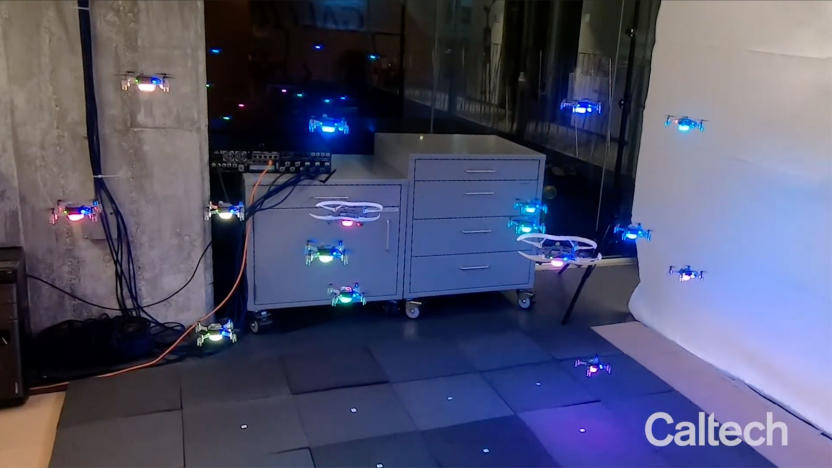
AI helps drone swarms navigate through crowded, unfamiliar spaces
Researchers have developed AI that lets drone swarms navigate cluttered, unmapped spaces without collisions.

Mozilla project exposes YouTube's recommendation 'bubbles'
Through these different personas, Mozilla hopes to demonstrate how YouTube’s recommendation algorithm could confirm certain biases. The six personas were created after Kihara conducted interviews with real YouTube users who experienced similar recommendation bubbles.

'Predictive policing' could amplify today's law enforcement issues
Law enforcement in America is facing a day of reckoning over its systemic, institutionalized racism and ongoing brutality against the people it was designed to protect. Virtually every aspect of the system is now under scrutiny, from budgeting and staffing levels to the data-driven prevention tools it deploys. A handful of local governments have already placed moratoriums on facial recognition systems in recent months and on Wednesday, Santa Cruz, California became the first city in the nation to outright ban the use of predictive policing algorithms.

Disney's face-swap technology is as impressive as it is unsettling
Disney has made deepfakes more convincing than ever.

House Intelligence Committee grills Facebook over algorithms
Facebook didn't have many answers.
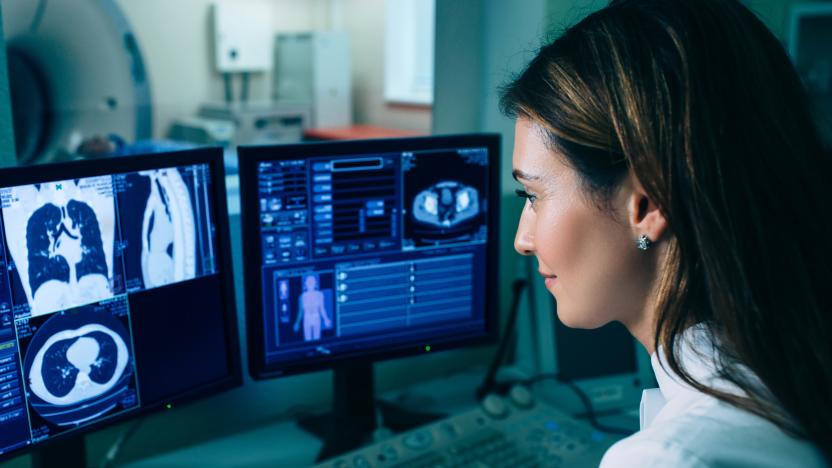
Mount Sinai’s AI can diagnose COVID-19
Researchers from Mount Sinai believe they are the first in the US to use AI, combined with imaging and clinical data, to diagnose COVID-19.
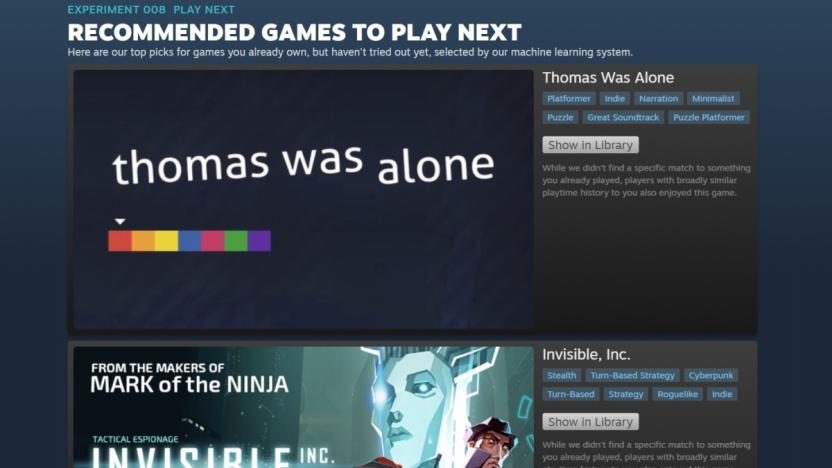
Steam uses AI to find interesting games you already own
Steam's 'Play Next' feature uses AI to recommend games from the ones you already own.

This AI generates gibberish words with nonsensical definitions to match
ThisWordDoesNotExist.com offers an endless stream of AI-generated nonsensical babble, accompanied by seemingly plausible dictionary definitions.

Court finds algorithm bias studies don't violate US anti-hacking law
Researchers should be free to look for bias in website algorithms in the future. A federal court in DC has ruled in a lawsuit against Attorney General William Barr that studies aimed at detecting discrimination in online algorithms don't violate the Computer Fraud and Abuse Act. The government argued that the Act made it illegal to violate a site's terms of service through some investigative methods (such as submitting false info for research), but Judge John Bates determined that the terms only raised the possibility of civil liability, not criminal cases.
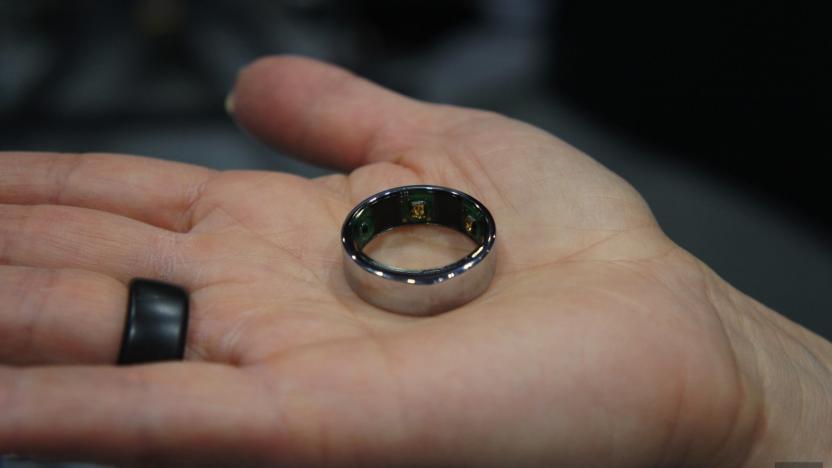
ER docs don smart rings to better predict COVID-19 infections
Some 2,000 emergency medical workers in San Francisco are tracking their temperature and other vitals with Oura's smart rings in an attempt to limit the spread of COVID-19, SF Chronicle reports. Oura and researchers from the University of California San Francisco (UCSF) hope to use that data to develop an algorithm that will predict the onset of COVID-19 and help contain the virus.

Intel’s neuromorphic chip learns to ‘smell’ 10 hazardous chemicals
Of all the senses, scent is a particularly difficult one to teach AI, but that doesn't stop researchers from trying. Most recently, researchers from Intel and Cornell University trained a neuromorphic chip to learn and recognize the scents of 10 hazardous chemicals. In the future, the tech might enable "electronic noses" and robots to detect weapons, explosives, narcotics and even diseases.

Microsoft disrupts a botnet that infected 9 million computers
Today, Microsoft and partners from 35 countries took steps to disrupt a botnet behind the world's largest cybercrime network. The botnet, Necurs, has infected an estimated nine million computers worldwide, and it's one of the largest spam email networks, generating as many as 3.8 million spam emails in a two-month period.
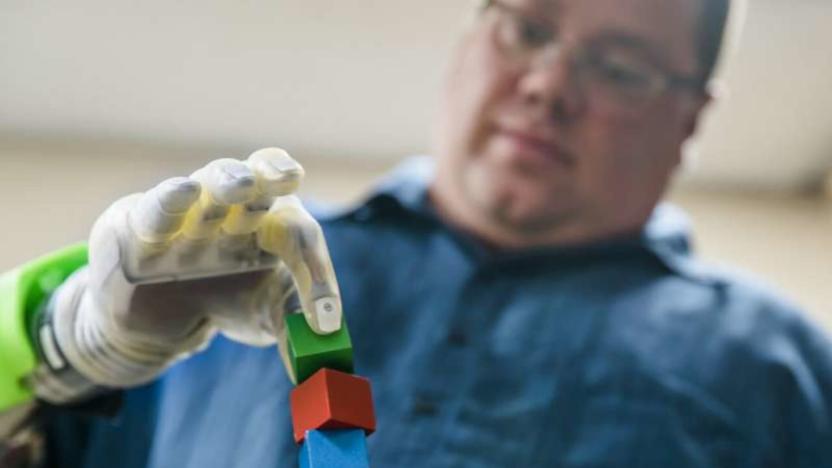
Scientists develop neuroprosthetic tech that amputees don't need to learn
For those working in the field of neuroprosthetics, the ultimate goal is to give amputees with artificial limbs natural, intuitive and real-time movement. Indeed, advances in the field have led to mind-controlled systems and even those that create kinaesthetic feedback, but so far such technologies require a great deal of learning and practice by the amputee. Now, however, scientists from the University of Michigan have developed a neuroprosthetic technology that restores intuitive movement to amputees from the get-go -- no learning required.

YouTube's tweaks to recommend fewer conspiracy videos seem to be working
One of the most important aspects of YouTube is its recommendation engine, as the vast majority of views and watch time come from suggested content, rather than direct traffic. The platform does a good job of determining which videos would be relevant to a given user, but when it comes to news and fact-based videos, conspiracy theory content can find its way in. As of January of 2019 -- and after facing public backlash -- YouTube promised to curb the amount of conspiracy videos it pushes to users. A study published by the University of California, Berkeley states that these efforts do seem to be working, and that their analyses show a 40% reduction in the likelihood of YouTube suggesting conspiracy-based content.

An algorithm could make CPUs a cheap way to train AI
AI is the backbone of technologies such as Alexa and Siri -- digital assistants that rely on deep machine learning to do their thing. But for the makers of these products -- and others that rely on AI -- getting them "trained" is an expensive and often time-consuming process. Now, scientists from Rice University have found a way to train deep neural nets more quickly, and more affordably, through CPUs.

FDA clears algorithms that detect heart murmurs and AFib
The FDA just granted clearance to a suite of algorithms that could help healthcare providers in the US more accurately screen for heart conditions during routine physical exams. The algorithms, developed by Eko, can help detect both heart murmurs, indicative of valvular or structural heart disease, and atrial fibrillation, or AFib, which can lead to blood clots, strokes, heart failure and other complications.

Congresswoman calls on YouTube to stop promoting climate misinformation
Congresswoman Kathy Castor (D-Florida) is calling on YouTube to stop including climate change misinformation in its recommendation algorithm and to demonetize videos that deny climate change. In a letter addressed to Google CEO Sundar Pichai, Castor references a report by Avaaz, which claims that YouTube is sending millions of users to climate change misinformation videos every day.






